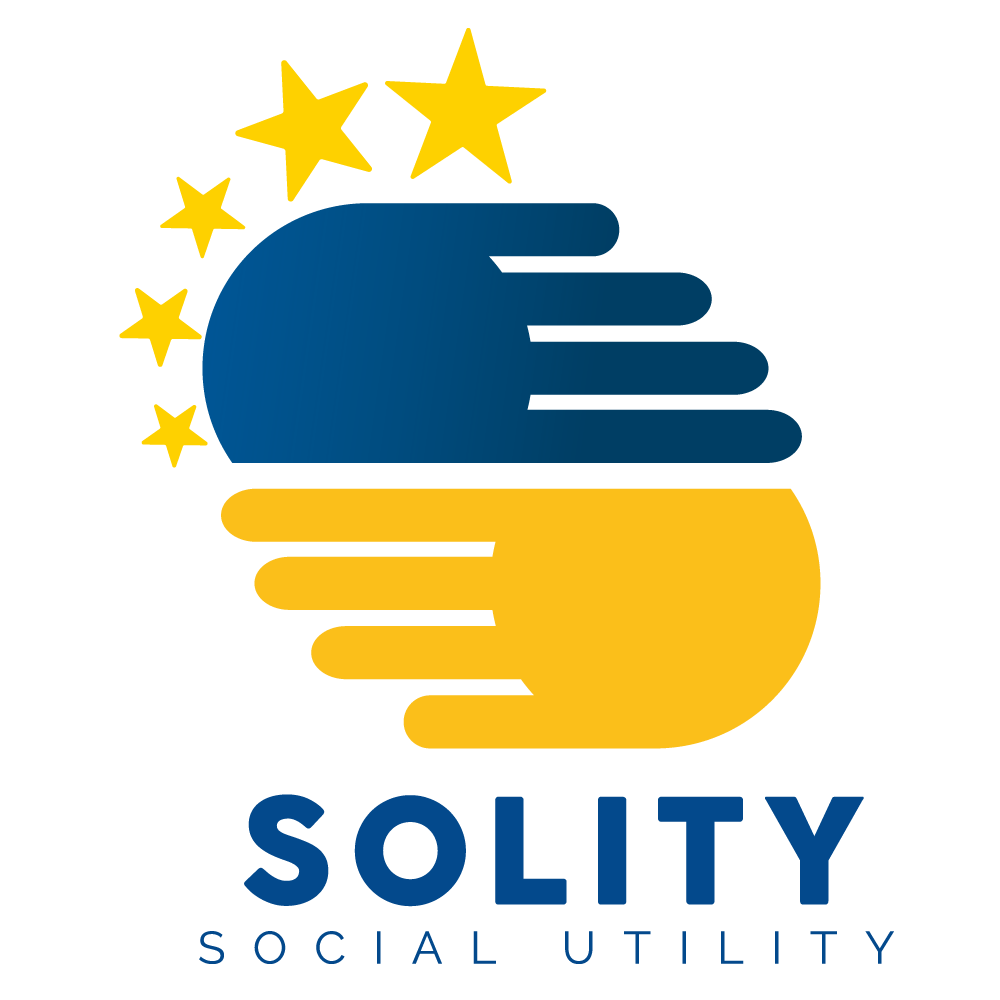
VET Social Utility Monitor
Erasmus+ KA3 - Forward-Looking Cooperation Projects
590169-EPP-2017-IT-PI-FORWARD
517.720,00 €
01/2018 - 01/2020 (24 months)
Italy, Germany, France, Belgium
SOLITY
The context in 2017 Framework documents to which the SOLITY project refers:
- The 2015 Joint Report of the Council and the Commission on the implementation of the strategic framework for European cooperation in education and training (ET 2020), which has, among its 6 priorities, the following: “Sustainable investment, performance and efficiency of education and training systems”: the project will indeed contribute to assessing the performance of VET centres and, consequently, to make more transparent the efficacy of the investment in VET. If used by a large number of European VET centres, the SOLITY model will also allow performance benchmarking at European level.
- The European Policy Agenda: in the last few years, the European focus in VET has been first on increasing the numbers of graduates, then – in conjunction with the economic crisis – on boosting work-based learning. The SOLITY partnership believes that the next focus should be on social utility, i.e. VET should be able to have a positive and relevant impact on citizens by providing them with the necessary skills to cope with the future’s challenges.
Objectives of the project
The SOLITY project is born from the idea of linking the assessment of VET performance to the assessment of its impact on the overall society.
In terms of innovation and added values, the project develops the following two concepts:
1. THE FOCUS ON SOCIAL UTILITY:
in addition to collecting a set of data to make specific micro-economical evaluations, the ambition behind assessing VET performance is to be able to highlight VET’s social utility, i.e. its positive impact on society.
2. MAKE VET A FIRST CHOICE:
To try to assess VET social utility is not only a way to assess its direct and visible impact or to evaluate whether the funding that public or private bodies put on VET is well spent, but also a way to educate society to see the individual and social value of Vocational and Educational Training, which is on the contrary often perceived as a second choice. The aim of the project is, therefore, to set up a solid, bottom-up and transferable model to assess VET social utility, based on a specific pool of qualitative and quantitative indicators. The final goal is to provide all European VET providers with a common tool to assess their impact, quality and performances at many levels.
Expected Results
- Building a self-assessment tool based on EQUAVET indicators, accreditation indicators and QMS (Quality Management Systems) indicators, but encompassing them all in a “social utility” dimension, thus not multiplying the data collected by VET centres at local/regional and national level.
- Developing a closer link between VET and citizens: the choice of talking about the “social utility of VET”, which implies proving the positive impact of VET provision on society and to make VET more “accountable” and transparent towards society about what it does and how it does it, is crucial. This choice of openness towards society is also a distinctive feature of the project since in different stages it involves experts from all over Europe, but also stakeholders, VET trainers, entrepreneurs, policy makers and VET customers, too.
- Making VET a first choice: the project has a high degree of innovation and contributes in a remarkable way to meeting the needs of VET as it not only provides a framework to assess the performance of VET provision but it also bridges the gap between VET and society.
- Long-term impact and anticipation of education/labour policy needs: the partnership advocates to set the basis for a European continuous performance-improvement system, where best-performing and innovative centres are not only awarded but share their best practices, where reasons for low performance at equal conditions can be better detected and solved and where cooperation between VET provider and the business industry is naturally fostered.
Project Activities
The selection and definition of the indicators to use in the SOLITY framework have been based upon what is already in place in the field of quality systems for VET, both at transnational (EQAVET, ISO) and national (Accreditation systems, AFPA model) level: starting from this vast and heterogeneous basis, and by following a strong and large cooperative approach, the project has developed a model that can measure the social utility of a VET provider.
The novelty of the approach is based on its attempt to develop a bottom-up system that encompasses what is already in place in the field of performance/quality assessment for VET and that shifts the focus on the social utility of VET, which means linking the assessment of VET performance to a concept of accountability (and transparency) towards society.
Four key phases have led to the delivery of the self-assessment tool:
1. Research
2. Development
3. Testing and validation
4. Dissemination and promotion
The designed model has been not only developed but also tested and validated through a series of actions that involved, among others, VET experts from all EU countries.
Project Partners
- European Association of Institutes for Vocational Training (EVBB) – Lead Partner (Germany)
- ENAIP NET - Impresa Sociale Societa' Consortile SRL (Italy)
- Association Nationale pour la Formation Professionnelle des Adultes (AFPA) (France)
- IB - Internationaler Bund (Germany)
- LE FOREM - Office Wallon de la Formation Professionnelle et de l'Emploi (Belgium)
- EVTA - European Vocational Training Association (Belgium)

